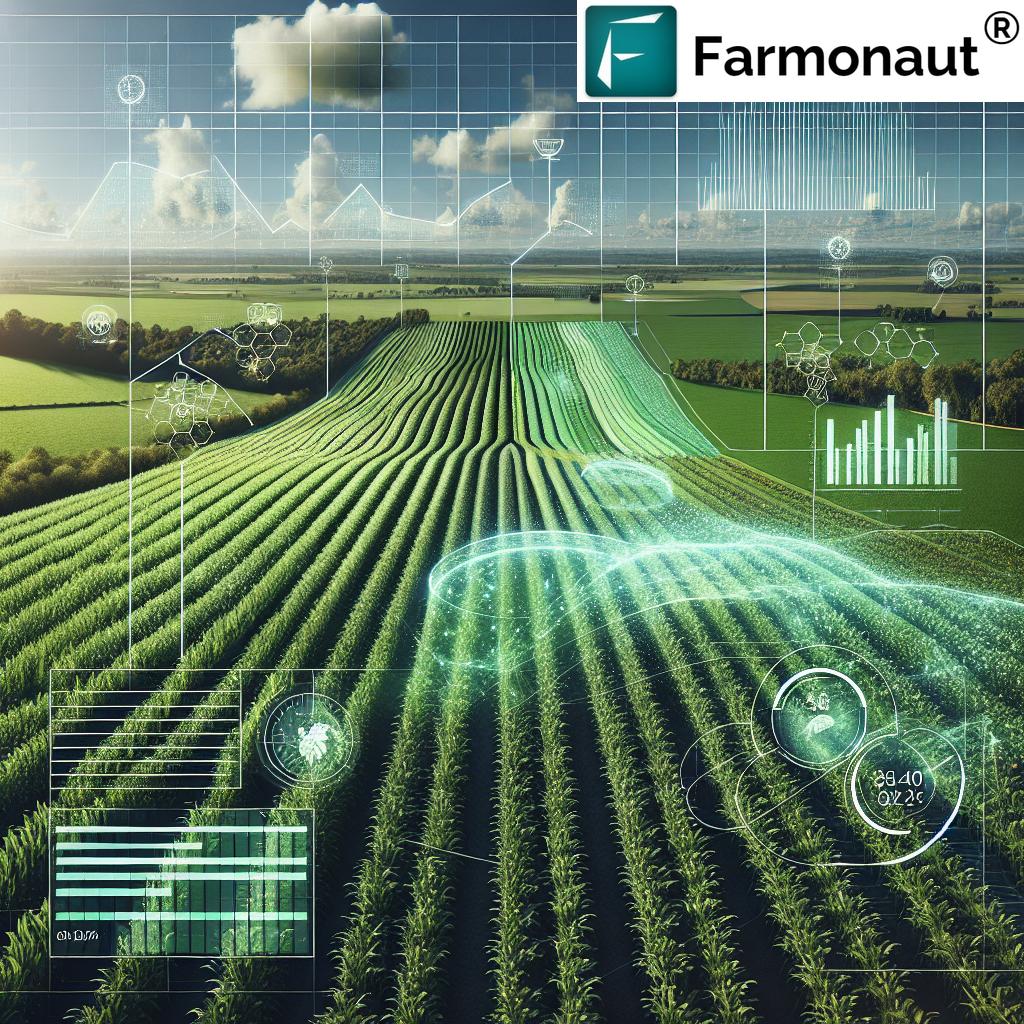Rose Bush Fertilizer Guide 2026: Boost Organic Rose Growth
Meta Description: Discover the most effective rose bush fertilizer options, including organic, liquid, and specialized variants, to boost rose health and blooms in 2026. Ensure sustainable, vibrant growth for your roses in home gardens and commercial flower farms.
“Up to 60% more blooms are achieved with precision, organic rose bush fertilization methods projected for 2025-2026.”
Table of Contents
- Understanding Rose Bush Fertilizer Needs
- Rose Tone Fertilizer: The Classic Choice
- Organic Fertilizers for Roses: Trends and Benefits
- Liquid Rose Fertilizer: Convenience and Efficiency
- Desert Rose Fertilizer: Specialized Nutrient Solutions
- Comparison of Top Organic Rose Bush Fertilizers (2025–2026)
- Fertilizer Use Best Practices in Rose Cultivation
- Smart Agriculture & Precision Solutions for Rose Fertilization
- How to Choose the Best Rose Bush Fertilizer for Your Situation
- Frequently Asked Questions about Rose Bush Fertilizers
- Conclusion
Understanding Rose Bush Fertilizer Needs
Roses are known for their lush, opulent blooms and vigorous growth. To achieve this, a rose bush requires a meticulous balance of essential nutrients and precision in fertilizer use. Whether you’re nurturing a home garden in a temperate climate or managing a commercial flower farm in high-tech greenhouse environments, understanding these fundamental nutrient needs is the cornerstone of successful rose cultivation in 2026.
The Core Nutrient Trinity: N-P-K
- Nitrogen (N): Promotes healthy, lush foliage and strong, rapid growth.
- Phosphorus (P): Critical for root development and bud/flower formation.
- Potassium (K): Enhances overall vigor, disease resistance, and blooming capability.
Key Micronutrients Required for Roses
- Magnesium – Vital for rich, green leaves and efficient photosynthesis.
- Iron – Prevents chlorosis and supports robust growth.
- Calcium – Strengthens cell walls and overall plant structure.
Regular fertilizing is essential because rose bushes quickly deplete soil nutrients, especially during prolific blooming seasons. Without proper nutrition, roses may become stunted, vulnerable to disease, and fail to produce those iconic vibrant blooms. Therefore, an ongoing, tailored fertilization strategy remains critical for optimal rose health and production.
As agricultural practices continue to evolve in 2026, the emphasis on balancing nutrient inputs with environmental responsibility increases. The shift toward sustainable and organic rose bush fertilizer use not only supports healthy plants, but also reduces detrimental effects on the ecosystem, ensuring a thriving garden, farm, or horticultural operation for future generations.
Rose Tone Fertilizer: The Classic Choice
When discussing rose bush fertilizer options, many experienced growers turn to rose tone fertilizer—a well-regarded, proprietary blend famed for its consistent results. This organic rose fertilizer is widely favored in both home and commercial rose cultivation.
Why Rose Tone Fertilizer Remains a Top Pick
- Typically contains: Fish meal, bone meal, sulfate of potash, and beneficial microbes—all elements that support a balanced nutrient supply and improved soil biology.
- Provides: Slow, steady nutrient release, crucial for sustained growth and blooming.
- Supports: Sustainable farming practices, enhancing soil structure and microbial health.
- Aligns with: The increasing trend of regulatory limits on synthetic fertilizers, especially in agroforestry and sustainable horticulture applications.
What Makes a Fertilizer “Rose Tone”?
- Blend of Natural Inputs: Derived from natural sources, often blending plant and animal-based meal with potassium and phosphorus-rich minerals.
- Enriched with Microbes: Probiotic soil amendments boost nutrient uptake and root health.
- Environmentally Friendly: Lowers the risk of nutrient runoff and aligns with sustainability goals.
Rose tone fertilizer exemplifies the best of both traditional horticultural wisdom and modern sustainability practices. By providing a slow, balanced supply of macronutrients and micronutrients, while enhancing the underlying soil structure, it forms the foundation of precision fertilizer use in a flourishing rose garden.
Organic Fertilizers for Roses: Trends and Benefits
Organic rose fertilizer solutions have experienced a remarkable surge in popularity in the past few years—a trend that’s projected to continue growing through 2026 and beyond. Both commercial farms and home gardeners are shifting focus toward products and practices that limit synthetic input, embrace natural cycles, and minimize environmental impact.
Top Organic Fertilizer Options for Roses
- Composted Manure: Rich, slow-releasing organic matter that fuels microbial activity and improves soil texture.
- Seaweed Extracts: Source of vital micronutrients (magnesium, iron), plant growth hormones, and chelated minerals for boosted resilience.
- Alfalfa Meal: Contains natural growth stimulants and a gentle boost of nitrogen for robust foliage.
- Bone Meal: Supplies high phosphorus content for vibrant root and flower development.
- Worm Castings: Enhances soil structure and improves water retention.
- Biofertilizers: Inoculated with beneficial microbes, these fertilizers jumpstart soil health in depleted environments.
Organic rose fertilizers also reduce the risk of chemical nutrient runoff and soil degradation. Products like compost or manure are increasingly favored in regions adjacent to sensitive habitats, as well as on certified organic flower farms, thanks to their intrinsic sustainability and their ability to support long-term soil health.
Benefits of Choosing Organic Options
- Reduces Environmental Impact: Minimizes nutrient leaching, protects waterways, and preserves microbial diversity.
- Builds Soil Structure: Increases organic matter, promoting resilience and water conservation.
- Supports Sustainability: Critical as consumer demand for eco-friendly, healthy flowers quickly increases.
“Sustainable rose fertilizer options can reduce environmental impact by 40% compared to conventional chemical fertilizers in 2026.”
Measure and Minimize Your Rose Farm’s Environmental Impact: With Farmonaut’s carbon footprinting solutions, growers can monitor emissions for rose and flower farming, supporting regulatory compliance and sustainability goals in 2026 and beyond.
Liquid Rose Fertilizer: Convenience and Efficiency
If you’re aiming for precision and adaptability in your fertilization practices, liquid rose fertilizer is rapidly becoming the option of choice for both organic and conventional growers. With its quick absorption and flexibility in application, especially via foliar spray or drip irrigation, liquid fertilization is ideal for both intensive commercial operations and attentive home gardeners.
Advantages of Liquid Fertilizer Forms
- Rapid Nutrient Uptake: Liquid fertilizers deliver nutrients directly to the root zone or foliage, making them available almost instantly.
- Precision in Dosage: Easily tailored to a specific growth phase or environmental condition.
- Uniform Application: Ensures even distribution of nutrients across beds, fields, or greenhouse setups.
- Organic Liquid Options: Kelp-based or fish emulsion products offer an eco-friendly, sustainable solution for rose bush fertilization.
In the ever-evolving context of 2025 and beyond, liquid rose fertilizer plays a significant role in resource optimization—minimizing nutrient waste and optimizing plant health, while supporting tech-enabled fertilizer use and advanced resource management.
Track Large-Scale Rose Farm Fertilization with Precision: The Farmonaut Large Scale Farm Management solution helps monitor field input, nutrient levels, and optimize liquid fertilizer schedules through satellite-driven insights and easy-to-use technology.
Desert Rose Fertilizer: Specialized Nutrient Solutions
Growing exquisite roses in arid, high-sun, or saline-prone locations is possible—if you use the right desert rose fertilizer. These specialized nutrient solutions are tailored for desert and water-limited environments, where classic fertilizers may not suffice.
Key Components of a Desert Rose Fertilizer
- Soil Conditioners: Like humic acids and gypsum to improve water retention and buffer soil salinity.
- Controlled-Release Forms: Slow dissolution of nutrients to match water availability and plant demand.
- Micronutrients: Adapted to deficiencies or imbalances common in desert soils (e.g., calcium, magnesium, boron).
- Drought-Resilience Boosters: Like seaweed extract, which enhance physiological stress resistance.
As climate change continues to challenge traditional agriculture and horticulture in 2026, the importance of niche, specialized fertilizer options for desert rose cultivation grows. These products ensure continued flower production, healthy root development, and reliable blooming—no matter how extreme the conditions.
Specialized desert rose fertilizer also often includes water-efficient methods and sustainable use of local amendments, underlining the ongoing shift toward resource management in global rose production.
Optimize Fertilizer Application Logistics in Harsh Environments: With Farmonaut’s fleet management tools, commercial rose growers in arid and remote or large-scale environments can optimize the delivery of desert rose fertilizer and all related input supply chains.
Comparison of Top Organic Rose Bush Fertilizers (2025–2026)
| Fertilizer Name | Type | Key Nutrients (N-P-K Ratio) | Application Method | Estimated Cost (per 1 kg) | Environmental Impact | Suitable Growth Stages | Precision Suitability |
|---|---|---|---|---|---|---|---|
| Rose Tone (Brand Example) | Organic Blend | 4-3-2 | Granular/Soil Topdress | $7–$10 | Low | Bloom, Root Development | Yes |
| Composted Manure | Organic | 1-0.8-0.6 | Soil Amendment/Mulch | $1–$3 | Low | All Stages | Moderate |
| Seaweed Extract | Organic | 0.2-0-1 | Liquid (Foliar/Irrigation) | $15–$20 | Low | Root Boost, Stress Periods | Yes |
| Bone Meal | Organic | 3-15-0 | Soil Mix/Planting Hole | $6–$9 | Low | Root/Flower Development | Yes |
| Liquid Kelp Fertilizer | Organic | 1-0-2 | Liquid (Foliar/Root) | $12–$16 | Low | Vegetative/Stress | Yes |
| Biofertilizer with Beneficial Microbes | Organic | Variable | Soil Amendment/Roots | $10–$25 | Low | All Stages | Yes |
| Desert Rose Specialized Blend | Organic Blend | 3-6-4 + Micronutrients | Granular/Drip Liquid | $8–$14 | Low | Drought/High Sun | Yes |
| Alfalfa Meal | Organic | 2.5-0.5-2.5 | Soil Topdress/Mulch | $4–$7 | Low | Active Growth | Moderate |
Enhance Rose Fertilizer Precision via API Integration:
Integrate satellite-derived insights for rose growth, health, and fertilizer optimization. Access Farmonaut’s API here or read the API Developer Docs to automate input management for your rose farm.
Fertilizer Use Best Practices in Rose Cultivation
To maximize fertilizer efficiency while minimizing negative environmental effects, strategic management and best practices are imperative when cultivating roses—be it in a home garden context or a cutting-edge commercial farm. Here’s how to ensure your roses thrive:
Integrated Nutrient Management Steps
- Soil Testing: Before fertilizing, analyze your soil to identify nutrient levels and pH. This prevents over-application and waste.
- Tailored Timing: Apply a rose bush fertilizer in early spring (after pruning), during early active growth, and modestly after peak bloom.
- Type and Dosage: Select the best fertilizer based on your needs—rose tone blends for steady nutrition, liquid rose fertilizer for rapid uptake, or organic options for overall sustainability.
- Mulching: Organic mulching reduces nutrient leaching, conserves water, and supports microbial life.
- Innovative Forms: Use slow-release coated fertilizers and biofertilizers (with beneficial microbes) in precision rose cultivation to boost nutrient uptake while minimizing inputs.
- Water Management: Ensure consistent soil moisture—drought or waterlogging stresses plants and skews nutrient balance.
- Crop Rotation and Companion Planting: In larger operations, rotating crops and using companion species supports soil health for future rose cycles.
Regular monitoring—using observation, simple test kits, or remote sensing tools—helps adjust fertilizer use in real time for optimal growth and sustainability.
Ensure Rose Bush Input Traceability for Organic Certification:
With Farmonaut’s blockchain traceability tools, rose producers can record, secure, and share fertilizer and input histories—a critical element for certified organic roses and transparent commercial flower production.
Smart Agriculture & Precision Solutions for Rose Fertilization
Modern rose fertilization doesn’t stop at product selection. Advanced technology—from satellite remote sensing to AI-driven advisories—enables a new realm of precision farming that optimizes nutrition, maximizes blooms, and underscores sustainability.
- Satellite Monitoring: Real-time tracking of rose bush health (vegetation indices, soil nutrient status, moisture content) supports accurate input adjustments.
- AI-Based Crop Advisory: Personalized recommendations on fertilizer type, timing, and irrigation for every stage of rose growth.
- Blockchain Traceability: Secures the complete history of rose fertilizer use and input sources for end-to-end transparency.
- Resource Management: Logistics and supply optimization ensure the right fertilizer reaches the right bush, at the right time—no waste, no environmental penalty.
- Environmental Monitoring: Track carbon footprint and compliance with emerging sustainability regulations in rose and flower farming.
We at Farmonaut provide advanced, affordable satellite-driven farm management solutions that empower commercial rose producers and ambitious home gardeners alike to implement precise, sustainable, and efficient fertilizer use. By leveraging
multispectral imagery, real-time data, and AI-powered recommendations, we help optimize each step of your rose bush fertilizer program for enhanced growth, ecological responsibility, and maximum value.
How to Choose the Best Rose Bush Fertilizer for Your Situation
Selecting a rose bush fertilizer depends on several factors—your specific environment, cultivation system, and priority on sustainability. Here’s a practical decision-making guide for 2026:
By Growing Environment
- Home Gardeners: Classic rose tone fertilizer or compost-based organic fertilizers work well for soil health and steady bloom production.
- Commercial Farms/Florists: Lean toward liquid formulations for speed and precision, and biofertilizers for organic certifications and traceability.
- Greenhouses: Controlled-release or liquid rose organic fertilizers best support rapid turnover and intensive growing cycles.
- Desert/Arid Conditions: Choose specialized desert rose fertilizer blends, integrating water-efficient technologies and stress-resilience boosters.
By Fertilizer Type and Timing
- Granular/Slow-Release: Best for long-term soil improvement and busy gardeners.
- Liquid/Foliar: Excellent for quick response or targeted correction of visible deficiencies.
- Incorporate Mulch and Organic Matter: Improves soil structure and moisture, supporting overall plant health.
Precision Management is Key
- Test and adjust based on growth stage—use more phosphorus during budding and more potassium just before peak bloom.
- Always follow label instructions and local regulations regarding fertilizer use.
- For certified organic rose cultivation, meticulously document every input for inspection and compliance.
Secure Loans & Insurance on Data-Driven Rose Farming:
Farmonaut supports satellite-based crop verification for loans and insurance, improving access and reducing risks for commercial rose farmers and exporter cooperatives.
Frequently Asked Questions about Rose Bush Fertilizers
1. What is the best fertilizer for rose bushes in 2026?
The best fertilizer depends on your specific situation—rose tone fertilizer remains a top choice for its balance, organic blends are ideal for eco-conscious growers, liquid rose fertilizer is great for rapid response, and desert rose fertilizer is necessary for saline or drought conditions. Precision and sustainability should guide your decision.
2. How often should I fertilize roses?
Fertilize at the start of active growth (early spring), after the first flush of blooms, and once more during the main growing season. Always adjust frequency based on soil tests and visible plant health.
3. Are liquid fertilizers better for roses?
Liquid rose fertilizers provide speedy nutrient delivery and are excellent for correcting deficiencies fast or for use in high-tech greenhouse or hydroponic systems. They’re efficient but should be balanced with slow-release options for best long-term results.
4. Is organic rose bush fertilizer truly “better”?
Organic fertilizers improve soil health, reduce environmental risk, and are increasingly favored as consumers demand chemical-free, sustainably grown flowers. For many, they offer long-term benefits and fewer side effects than synthetic alternatives.
5. How can I monitor my roses’ fertilizer needs more accurately?
In addition to routine soil testing and observation, satellite data and AI-driven dashboards (available through Farmonaut’s platform) can provide remote monitoring and targeted recommendations for large and small rose operations.
6. What options exist for rose farming in extreme (desert) climates?
Desert rose fertilizer blends are tailored for saline, low-water soils, using controlled-release nutrients, soil conditioners, and specialized micronutrient profiles to maintain healthy rose plants even under tough, arid conditions.
Conclusion
Fertilizing rose bushes effectively is at the heart of vibrant blooms, robust plant health, and ongoing productivity in the evolving landscape of horticulture and flower farming for 2026. Choices range from classic rose tone fertilizer and organic inputs to liquid rose fertilizers for precision management and desert rose fertilizer blends for niche environments.
The common threads: balanced nutrition, enhanced soil structure, strategic timing, and ongoing data-driven optimization. Integrating sustainable fertilizer use with cutting-edge resource and data management ensures expansive, healthy blooms and supports both ecological stewardship and commercial profitability for all scales of rose cultivation.
As agriculture continues to evolve, leveraging tools—such as those offered through Farmonaut—empowers you to stay ahead. By embracing modern technology and informed, sustainable fertilization practices, every grower can contribute to a thriving, resilient, and rewarding future for roses across all environments.
Ready to transform your rose cultivation with the latest in fertilizer science and satellite-powered management?












